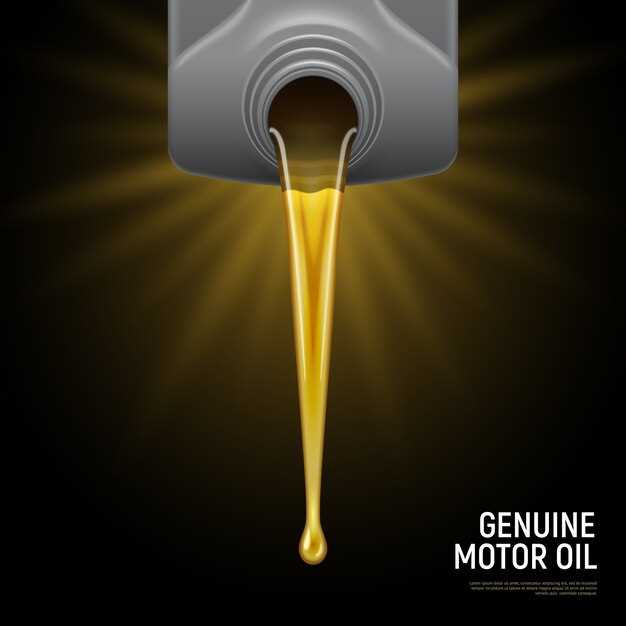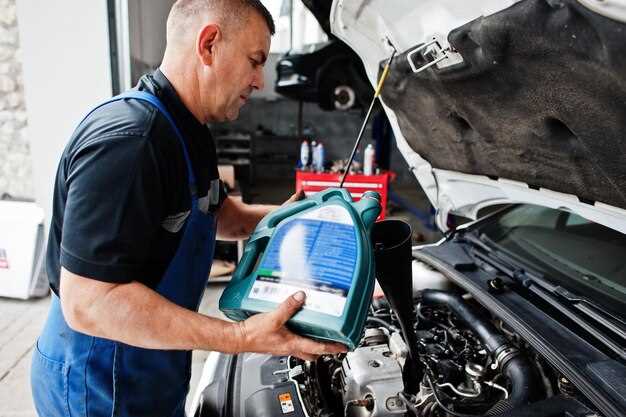
The selection of oil for classic cars is a crucial aspect of vehicle maintenance that significantly impacts engine performance and longevity. Unlike modern vehicles, classic cars often have distinct mechanical characteristics, which necessitate a different approach to lubrication. Understanding the specific requirements of older engines is essential for any car enthusiast or collector who aims to preserve the integrity and functionality of their vehicle.
One of the primary considerations when choosing oil for classic cars is the type of engine design, which may include older technology such as flat-tappet cams and higher tolerances. These engines often rely on traditional, non-synthetic oils that provide adequate protection under different operating conditions. Additionally, viscosity levels play a vital role, as classic engines may benefit from oils with higher viscosity ratings that can adhere better to engine components, reducing wear and tear.
Moreover, it is essential to take into account the oil formulation. Classic car owners should prioritize oils that contain zinc dialkyldithiophosphate (ZDDP), an additive that provides superior protection for flat-tappet camshafts. Modern oils often lack sufficient amounts of ZDDP, which can lead to premature engine wear and failure. As such, sourcing oil specifically designed for classic and vintage vehicles can mitigate these risks while ensuring optimal performance.
Ultimately, the journey of choosing the right oil for classic cars is one that involves careful consideration of engine type, viscosity needs, and specific additives. By making an informed decision, classic car enthusiasts can enhance the performance and lifespan of their treasured vehicles, enabling them to enjoy the nostalgia and joy of driving a piece of automotive history for years to come.
Understanding Viscosity and Its Impact on Engine Performance
Viscosity refers to the thickness or resistance of a fluid to flow. In the context of engine oil, viscosity is crucial because it directly influences how the oil lubricates engine components, affects fuel efficiency, and impacts overall engine performance. For classic cars, selecting the appropriate oil viscosity is essential due to the unique characteristics and requirements of older engines.
The viscosity of engine oil is typically expressed in two numbers, such as 10W-40. The first number, followed by a “W” (for winter), indicates the oil’s viscosity at low temperatures, while the second number reflects its viscosity at high temperatures. This dual rating helps ensure that an oil can perform well under both cold start conditions and high operating temperatures.
For classic cars, which often feature non-precision machining and may have larger tolerances compared to modern engines, choosing the right viscosity is vital. A higher viscosity oil can provide better lubrication under heat and pressure, reducing wear on engine parts. However, using oil that is too thick can lead to poor circulation, especially during cold starts, resulting in inadequate lubrication and potential damage.
Conversely, a lower viscosity oil may flow more freely at lower temperatures, promoting quick lubrication upon startup. This can be particularly beneficial in colder climates or for vehicles that are not regularly driven. However, insufficient viscosity at high temperatures can result in increased wear and tear on engine components.
It is important to consider the manufacturer’s recommendations and the specific conditions in which your classic car will operate. Factors such as climate, engine modifications, and usage frequency should all be taken into account when selecting an appropriate oil viscosity. Regularly monitoring oil condition and changing it as needed will also help ensure optimal engine performance over time.
In summary, understanding viscosity not only aids in selecting the right oil for classic cars but also plays a critical role in maintaining engine longevity and efficiency.
Evaluating Oil Types: Mineral vs. Synthetic for Vintage Engines

When it comes to selecting oil for vintage engines, the choice between mineral and synthetic oil is crucial. Each type has distinct properties and benefits that can significantly impact the performance and longevity of classic cars.
Mineral oils are derived from refined crude oil and have been the traditional choice for many classic vehicles. They provide excellent lubrication, particularly for older engines designed with looser tolerances. Mineral oils often contain additives that help protect against wear and oxidation, making them suitable for high-mileage engines. Additionally, classic car enthusiasts often prefer mineral oils for their authenticity, maintaining the original characteristics of vintage vehicles.
On the other hand, synthetic oils are chemically engineered to offer superior performance in various conditions. They provide enhanced stability at high temperatures and excellent fluidity at low temperatures compared to their mineral counterparts. This can lead to improved engine efficiency and reduced engine deposits, which are critical in preserving the health of vintage engines. Furthermore, synthetic oils usually have a longer lifespan, which means they require less frequent changes, contributing to lower long-term maintenance costs.
However, switching to synthetic oil in a classic car should be approached with caution. Some vintage engines may have seals and gaskets that aren’t designed to handle the unique properties of synthetic oils, potentially leading to leaks. It’s essential to evaluate the specific requirements and conditions of the engine before making a choice.
In conclusion, when evaluating oil types for vintage engines, consider both the benefits of mineral and synthetic oils. Each has its own advantages and potential drawbacks, and the best choice often depends on the specific needs of the engine and the owner’s maintenance philosophy. Consulting with a specialist or a mechanic familiar with classic cars can provide valuable insights in making an informed decision.
Recognizing Oil Additives for Enhanced Protection and Longevity

Oil additives play a crucial role in enhancing the performance and longevity of engine oils, especially for classic cars that often require specialized care. Understanding the various types of additives can help car enthusiasts choose the right oil that ensures optimal protection for their vintage engines.
One common category of oil additives is detergents. These agents help keep engine parts clean by preventing the buildup of sludge and varnish. For classic cars, where engines may already be susceptible to deposits due to age, utilizing an oil with a strong detergent package is essential to maintain engine cleanliness and efficiency.
Another important additive is antioxidants, which combat oxidative degradation of the oil. This is particularly vital for classic cars that may not be driven frequently, as oil can deteriorate over time due to prolonged exposure to heat and air. Selecting oil with antioxidants can significantly extend oil life, ensuring the engine remains protected even during extended periods of inactivity.
Extreme pressure (EP) additives are vital as well, especially for older engines with less sophisticated lubrication systems. These additives provide a boundary layer of protection, preventing metal-to-metal contact during high-stress conditions. This is particularly important for classic cars that may experience higher wear rates due to outdated engineering compared to modern vehicles.
Viscosity index improvers are another subset of additives that maintain oil thickness across varying temperatures. Classic cars may operate under different conditions than contemporary vehicles, so selecting oil with these additives can ensure that the oil retains sufficient viscosity, thereby offering better protection during hot and cold starts.
Lastly, seal conditioners can rejuvenate and protect the rubber seals of older engines, reducing the risk of leaks. Over time, seals can become brittle and prone to failure due to age. An oil containing these conditioners can extend the life of seals, ensuring less maintenance and a healthier engine overall.
In conclusion, recognizing and understanding the different oil additives available can lead to more informed decisions when choosing oil for classic cars. By selecting products with appropriate additives, car owners can enhance engine protection, improve performance, and extend the longevity of their cherished vehicles.
